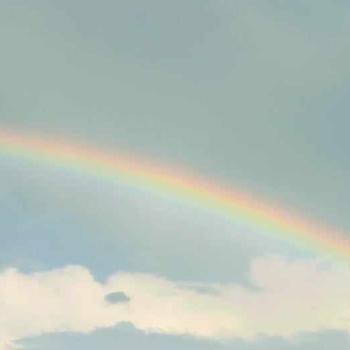“The biblical world view is that we have a responsibility to manage and cultivate, harvest the natural resources that we’ve been blessed with to truly bless our fellow mankind.” This was how EPA director Scott Pruitt stated his view of how the Bible justifies fossil fuel extraction. In an interview with the conservative Christian news agency, CBN, he insisted that the Bible authorizes the use of coal, oil, and gas, despite its demonstrated harmful effects on air, water, land, and human health.
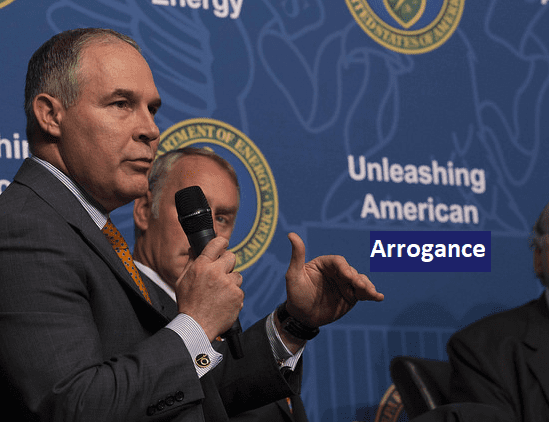
Unfortunately, this a dangerous and inaccurate rationalization based on a perverted interpretation of scripture. And it is easily debunked with a closer reading of Genesis.
Some Christians will cite Genesis 1:28 as the foundational text for humans dominating God’s Creation.
The verse reads:
“God blessed [the humans], and God said to them, ‘Be fruitful and multiply, and fill the earth and subdue it; and have dominion over the fish of the sea and over the birds of the air and over every living thing that moves upon the earth.’”
But not only do people like Pruitt mistake “dominion” with “domination,” they also ignore Genesis 2:15. That verse states:
“The Lord God took the man and put him in the garden of Eden to till it and keep it.”
Genesis 2:15 is pivotal because of two verbs – till and keep. In Hebrew they are abad and shamar.
The verb abad specifically means “to subject oneself as a servant” to God and Earth. As biblical theologian Carol Newsome explains, “The image that Genesis has of the original human relationship to the environment is one that involves interaction but of a very modest sort. The forest of Eden is imagined as what we would call a permaculture, where human attention is part of the ecosystem, but of a nature rather like ‘light pruning and raking.'”[1]
The other verb, shamar, means “to keep, guard, observe, and give heed.” Adam, (literally, “Earthling”) is charged with guarding and protecting the garden, watching it with a close eye, and heeding – listening – to Earth. It is the same verb used for “keeping the sabbath.” Thus, we can deduce that humans are to regard Earth as holy, just as the seventh day is to be revered and respected as holy. Other forms of the Hebrew verb shamar mean “to protect and save life,” and connote abstaining, refraining, and restraining oneself.
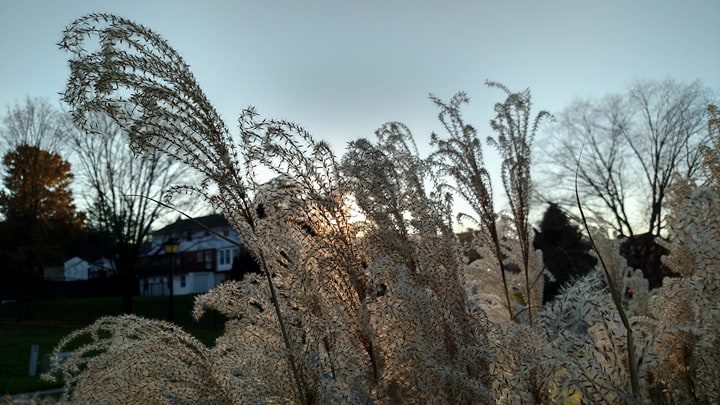
This is in sharp contrast to Pruitt’s devious interpretation of scripture used to sell and profit from Earth’s resources however we see fit, no matter the consequences.
What the Bible actually gives us is a model for caring for Earth and working alongside Earth as partners. But just as Pruitt and his ilk do today, Adam and Eve violated the sacred covenant.
In Genesis Chapter 3, the ground is cursed because Adam and Eve ate fruit from the tree of knowledge. This story of the “fall” of human beings has specific application to the current environmental crisis. The narrative shows us that God set limits for human beings in how they were to exist in the garden. For the good of Adam and Eve, for the good of the tree, for the good of the entire garden, God essentially said: “This far and no farther.” God established a boundary for the mutual protection of the relationship between humankind and the created world.
Did the original humans respect these boundaries?
No. They did not obey the limits God set for them. They ignored the warnings, flouted the rules, and crossed the line. There is, perhaps, a feeling entitlement in Eve and Adam’s rationalization of their disobedience.
You can almost detect a Pruitt-like petulance in their attitude.
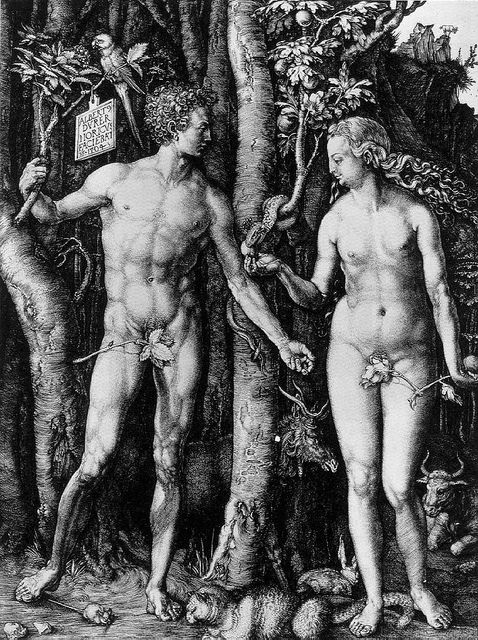
“This is our garden after all. God gave it to us. We should be allowed to do anything we want with it. Look, the fruit is good to eat. It will make us smarter, better, richer. God just doesn’t want us to be like God. God’s afraid we’ll know what God knows. And why shouldn’t we?”
Because of this arrogance, there is an immediate cascade of events that shatters the relationships of paradise.
The humans hide from God, and are not honest with God or themselves. They blame each other and refuse to accept responsibility for what has happened. But the consequences are unavoidable. From that point on, their relationship with Earth is damaged. “Cursed is the ground because of you; through painful toil you will eat of it all the days of your life.” (Genesis 3:17b). All because of human beings’ insistence that we can have whatever we want whenever we want it, no matter what the cost or the consequence.
Mr. Pruitt, the Bible tells us that the laws, decrees, and ordinances of God are about respecting the boundaries of relationships.
This includes our relationships within the delicate balance of our ecosystems. Thus, we must be mindful of our impact on them. And yet we continually cross the lines and insist that we can and should pluck the fruit from the tree of knowledge of good and evil, rationalizing that we have the right to become like God.
But just because we can does not mean that we should. The warnings are clear, and they apply to the temptation of fossil fuels.
Do not continue to pollute the air, water and soil.
You’ll learn good and evil the hard way when your children die from strange diseases and you can’t swim or eat fish from the poisoned waters.
Do not continue drilling for fossil fuels.
You’ll learn good and evil the hard way when the gasses trap heat within the atmosphere and melt your icebergs and flood your islands and coastlands and whip up catastrophic weather events.
Do not continue to clear-cut the earth to make way for frack pads and industrial waste sites.
You’ll learn the good and evil the hard way when species die out and invasive plants and animals take over weakened natural habitats.
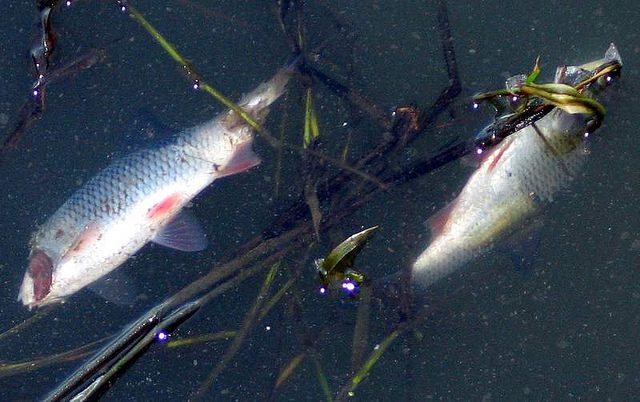
Mr. Pruitt, there are limits and boundaries that God has established which humans need to respect.
God created the best carbon-sequestering system that could have ever been devised. The shale and oil is buried thousands of feet beneath the earth’s surface for a reason. Because it was meant to stay there! When we release it into the atmosphere it disrupts the delicate balance created over millions of years that sustains life on this planet.
In fact, we have done more than just cross the line.
We’ve decimated the entire garden. We are not just plucking fruit from the tree anymore. We’re cutting the whole tree down. We are annihilating swaths of forests and destroying entire mountains to “harvest” the gas and oil and coal that tempts us with its illusory promises of power and wealth.
So, no, Mr. Pruitt, fossil fuels are not a “blessing” from God.
Why would such a “blessing” require the large-scale industrialization of what was once beautiful forests, farmland, meadows, and communities? Any “resource” that results in poisoning billions of gallons of water, and industrial infrastructure that explodes and emits poisonous gases, is no blessing. Any energy source that ruins communities and public health is certainly no blessing from God. It is, in fact, the curse of humanity’s arrogance.
What is a blessing from God, Mr. Pruitt, is clean water and air, intact forests and natural lands.
The blessing from God is the ability to discern how to live within the natural boundaries God has set for us. God’s blessing to us is the human the capacity for innovation that enables us to discover and utilize clean, renewable energy forms that do not threaten the planet and human health. The blessing from God is to have communities and leaders (such as you should be) who are honored for their protection of God’s Creation rather than their willingness to sacrifice it.
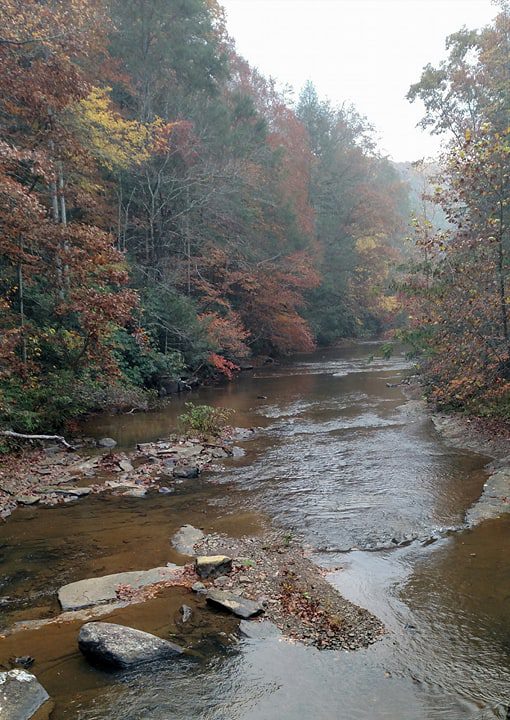
Mr. Pruitt, the Bible teaches us that there is great blessing in establishing boundaries and protecting them.
Foregoing profit in order to preserve God’s Creation reaps rewards far beyond monetary wealth. The real blessing is trusting that there is a reason why the forbidden fruit is placed so far out of reach. It’s better left alone – for our sake, for the sake of the planet, and for the sake of our relationships with each other and God.
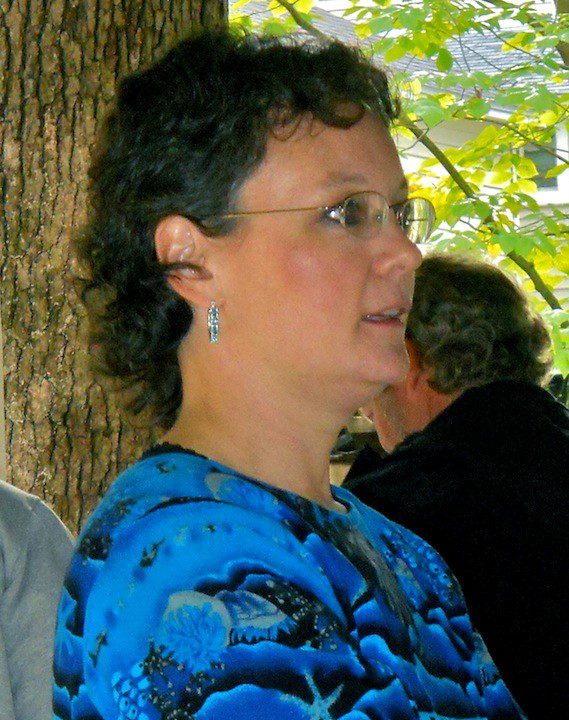
Leah D. Schade is the Assistant Professor of Preaching and Worship at Lexington Theological Seminary (Kentucky) and author of the book Creation-Crisis Preaching: Ecology, Theology, and the Pulpit (Chalice Press, 2015). She is an ordained minister in the Lutheran Church (ELCA).
Twitter: @LeahSchade
Facebook: https://www.facebook.com/LeahDSchade/.
Also read:
Exit Paris? Enter Pentecost! A Christian Response to Reneging on the Climate Promise
9 Reasons “Trumpy Bear” is a Sham: The Cuddlefication of a Despot
Preserving the Holy Remnant: Kentucky Natural Lands Trust
Healthy Trees, Healthy People: Why Citizen Scientists are Needed as Climate Changes
Include Mother Earth in the #MeToo Movement: “Don’t Frack Your Mother”
[1] Newsome, Carol A., “Common Ground: An Ecological Reading of Genesis 2-3”; The Earth Story in Genesis, Earth Bible, 2, ed. Habel, Norman, and Shirley Wurst (Sheffield, England: Sheffield Academic Press, 2000), 64-5.











